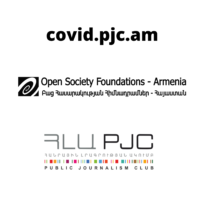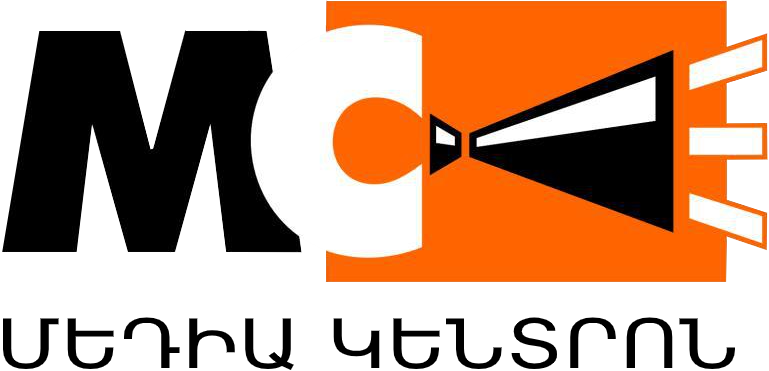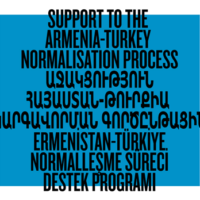
Media Literacy Teaching Will Be Conducted with User-Friendly and Creative Manuals Guaranteed by the Ministry
- December 28, 2023
- Category: News
Media literacy teaching in Armenian preschool educational institutions will henceforth be facilitated through entirely new manuals. These guides encompass theoretical foundations of media and media literacy, offering insights into the directions and pedagogical requirements for integrating media education into kindergarten teaching processes. Additionally, the manuals include practical components, such as specific lesson plans for media education, thematic units, game examples, and guidance for engaging with parents.
The manuals were developed by specialists of the “Step by Step” Foundation and the Teaching Academy organization, within the framework of the “Media and Information Literacy in Early Childhood Education” project of the Public Journalism Club, funded through a Department of State Public Diplomacy Section grant.
“These manuals offer the chance to deliver high-quality teaching tailored to the demands of our time, presenting complex topics in a simple format. We look forward to maintaining and expanding the series in the future,” states Seda Muradyan, President of the Public Journalism Club.
The aim of the manuals tested by the “National Center for Education Development and Innovations” (NCEDI) Foundation and guaranteed by the Ministry of Education, Science, Culture and Sports of RA is to support the pedagogical workers of preschool educational institutions and parents to implement media education in the pedagogical process of kindergarten and to form the digital and media abilities of students. The manuals are equipped with pictures, ideas for practical and individual work, the course of training is described in detail, fairy tales, games, books are included.
“Children will engage in hands-on activities and participate in diverse media and information-related exercises. They will acquire essential skills, learning to navigate the Internet safely and discern misinformation. Through these educational activities, children will foster critical thinking, observational prowess, analytical abilities, and the capacity to assess alternative viewpoints, ultimately empowering them to make informed decisions. The manual is designed for user-friendliness, devoid of complex vocabulary, and the theoretical section intended for teachers is articulated in a straightforward and easily comprehensible manner,” remarks Marine Mkrtchyan, the Executive Director of the “Step by Step” Charitable Foundation.
Marine Mkrtchyan adds that the manual aligns with the expected capabilities at the conclusion of preschool education, catering to the needs of middle and senior age groups. Highlighting the innovative ideas embedded in the presented classes, she emphasizes their role in stimulating imagination and facilitating the organization of media literacy classes in ways that are not only interesting but also more effective and meaningful for children’s overall development.
A distinctive feature of the manual lies in its incorporation of both classical works, such as H. Tumanyan’s “The Sky is Falling Down,” and contemporary pieces like “Chicken Clicking,” translated by the Public Journalism Club. According to Marine Mkrtchyan, the simplicity of the manual’s approach is noteworthy. Teachers need only acquaint themselves with the content, and if necessary, adapt it to meet the specific needs of their student group, making the manual a flexible and user-friendly resource for educators.
The authors of the manuals were guided by the overarching concept and criteria of educational, aligning with the abilities outlined in educational standards. This commitment is notably reflected in the methodological framework intricately woven into the manuals.
Lusine Poghosyan, the founder of the Teaching Academy organization, asserts that the manual serves as a comprehensive guide and support system for educators and pedagogues. It facilitates the planning and implementation of lessons and games with the explicit goal of cultivating a child’s media literacy and achieving the desired educational outcomes. The manual offers accessible options for structuring activities related to media literacy, provides illustrative examples of games, and outlines effective strategies for organizing collaborative efforts with parents.
Lusine Poghosyan highlights, “We have incorporated the fairy tale ‘Red Riding Hood’ into our curriculum as an integrated lesson, specifically focusing on the privacy of personal data. This serves as a prime example of how to engage in discussions and analyses within the realm of media literacy, emphasizing the development of crucial media skills. This exercise is designed not only for educators but also for parents. The manual includes practical tips for parents to consider when their child is using digital tools at home.”
The manuals are readily accessible online and can be downloaded directly from the PJC website. Additionally, informative videos showcasing the manuals can be found on PJC’s YouTube channel, available at the following links: https://bit.ly/4aQWJMd and https://bit.ly/3RXQJsq
It is essential to highlight that the overarching objective of the “Media and Information Literacy in Early Childhood Education” project is to enhance the digital security proficiency of educators. The initiative aims to deepen their comprehension of the significance of safeguarding personal data while equipping them with pertinent media and information literacy resources. These resources, along with the educational plans meticulously developed within the project framework, are intended for integration into the preschool educational system. The ultimate goal is to fortify educators with the necessary skills and knowledge to foster a secure digital environment for early childhood education.
As a pivotal component of the project, PJC has crafted a comprehensive, step-by-step guide to media literacy and digital safety. This resource is designed to be valuable for both educators and parents, offering practical insights and actionable steps to enhance awareness and proficiency in navigating the digital landscape securely.
A substantial achievement of the initiative is the active involvement of over 500 educators in webinars focused on media literacy development, featuring insights from leading international and Armenian experts. Furthermore, 31 educators participated in an offline Train the Trainers (ToT) course, contributing to their expertise in imparting essential skills and knowledge related to media literacy.
For any additional inquiries, feel free to reach out to Hasmik Paytyan, PJC Communications and Projects Coordinator, at the following contact details:
Mobile: 093270808
Email: [email protected]





